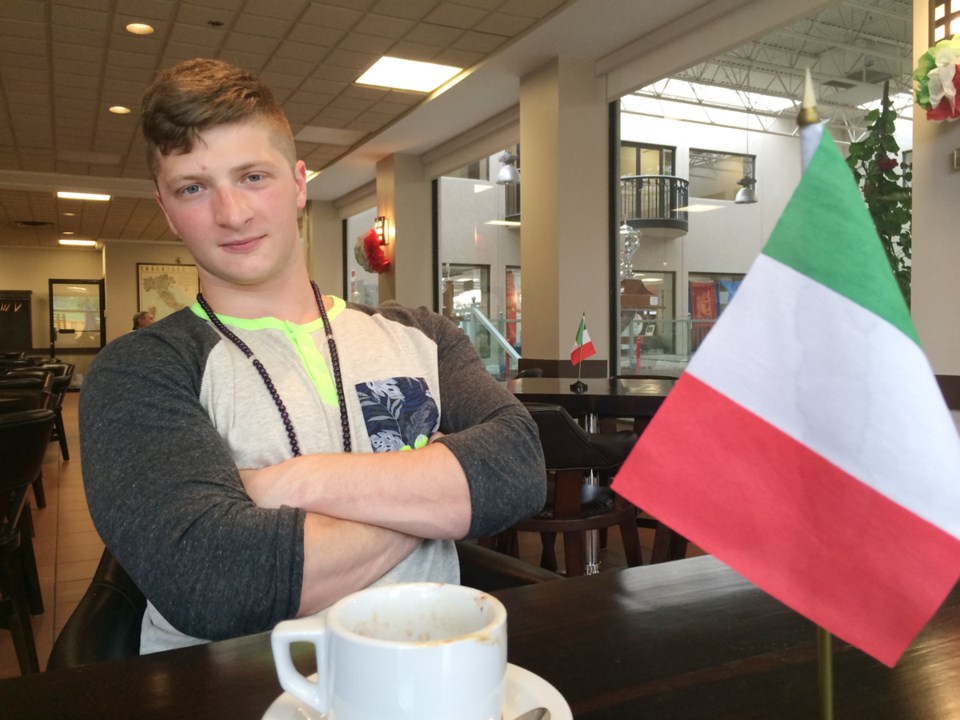Burnaby's Stefangelo Papa has a few of those telltale Italian features: a strong connection to family, expressive hand gestures and an appreciation for good food.
"Food is huge. Everybody in my family can cook," says the young Papa over a cappuccino in the noisy bar of Vancouver's Italian Cultural Centre. "I'm pretty sure I eat better than all my other friends."
The connection third-generation Italian-Canadians like Papa have with their grandparents' culture is the subject of the first online survey SFU is conducting through the newly launched Institute For Diaspora Research and Engagement.
Papa was a perfect candidate for the study: He's young, just 22; his grandparents immigrated here from Lazio and Calabria; he's been to Italy a few times; he can speak the language well, and he lives with his family in Burnaby's Heights neighbourhood, where many of the city's Italian residents are. For Papa, being Italian signifies many things, and he's more than happy to share his thoughts.
"It means that I take pride in my work, I have a strong relationship with my family, and I do the best that I can in school," he says.
When Papa's not studying sociology and psychology at SFU, he works in the Italian Cultural Centre's museum, pulling treasures from storage and readying them for display. His work at the centre has deepened his connection to his Italian background.
"I'm surrounded by my culture all the time," he says.
With third-generation immigrants, there's often a resurging interest in their respective cultures, according to SFU's Eva Sajoo, the survey's designer.
The first generations come to Canada and work hard to establish themselves, but they have a deep nostalgia for what they left behind, she explains. The second generations tend to be more interested in fitting in and may have a more discreet relationship to their parents' culture.
"But the third generation tends to be the ones that are more likely to look back and say, 'Isn't that interesting where grandpa and grandma come from,'" Sajoo says. "They are more interested in the hyphenated identity."
It's the third generation Italians that Sajoo wants to hear from with her survey.
"We're looking for behaviours and associations that might influence how people see their sense of identity," she says.
The Italian Cultural Centre is partnering with Sajoo on the survey and is very interested in the results, she says.
Like many cultural centres, the ICC was primarily established for and by first generation immigrants and served as a place to connect and find help settling in a new country. Nowadays, cultural centres - be they Jewish, Chinese or Polish - could be at risk of becoming irrelevant unless they adapt to the changing times, and that includes listening to the needs and interests of the third generations.
That's why Sajoo's survey findings should have implications for all immigrant communities, not just the Italians.
For Papa, he thinks there are aspects of Italian culture that would benefit North American life.
"The familial ties is what I would think would benefit North American culture the most, especially considering that North American culture is highly individualistic," he says. "That I think is very important to take home."
The survey will be online till fall. To participate, go to www.sfu.ca/diaspora-institute.html and click on Italian Identity Project. The results will be posted on the institute's site.



